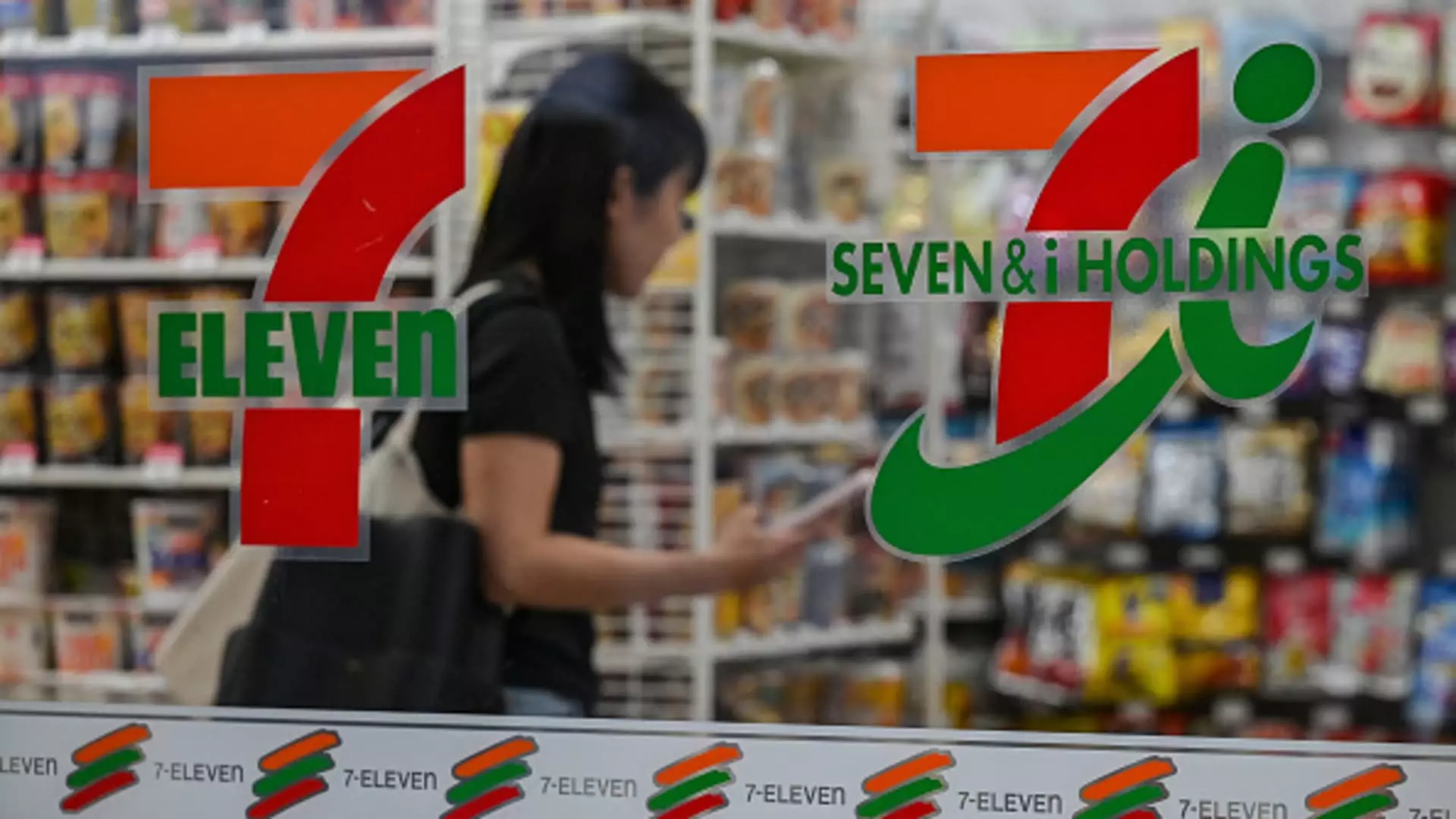In the fast-paced world of retail, companies must adapt or risk falling behind. Seven & i Holdings, the Japanese convenience store giant known largely for its 7-Eleven brand, finds itself at a pivotal juncture. With profits plummeting and pressure mounting from investors, the company has announced a sweeping restructuring plan, coupled with a significant revision of its earnings forecast. This article will explore the implications of these moves and the broader challenges facing the retail sector.
Seven & i Holdings has revised its profit expectations for the fiscal year ending February 2025, now anticipating a markedly lower net income of 163 billion yen (approximately $1.09 billion). This projection represents a staggering 44.4% decrease from its previous estimate of 293 billion yen. The adjustments are informed by a disappointing performance in the first half of the fiscal year, where the company reported a net profit of only 52.24 billion yen, significantly underwhelming compared to its guidance of 111 billion yen.
Compounding these woes is a noted decline in foot traffic at its overseas convenience store locations, where the company attributes this decline to customers taking a “more prudent approach to consumption.” Such consumer behavior poses a daunting challenge to retailers worldwide, especially as the economic landscape remains volatile. It signals a shift in consumer priorities and spending habits, which could have long-lasting ramifications for businesses that fail to adapt.
In response to these financial setbacks, Seven & i Holdings is actively pursuing a restructuring strategy designed to streamline its operations and enhance shareholder value. A key element of this strategy is the planned spin-off of non-core businesses, such as the Ito-Yokado Online Supermarket, into a standalone subsidiary. This move is not merely a reactive measure but part of a calculated effort to focus on core competencies while surrendering less profitable ventures.
Moreover, the establishment of an intermediate holding company to consolidate operations within its supermarket and specialty store businesses is indicative of a broader trend in the retail sector where companies are under increasing pressure to simplify their portfolios. Such a consolidation effort could provide more clarity and efficiency in operations, ultimately allowing Seven & i to navigate its way back into profitability.
As Seven & i seeks to restructure its operations, it does so against a backdrop of mounting pressure from investors, notably from Canadian firm Alimentation Couche-Tard, which has expressed interest in acquiring the company. After rejecting an initial offer of $14.86 per share—deeming it not in the best interest of shareholders—Seven & i is now dissecting a revised bid reported to be about 20% higher at $18.19 per share. If accepted, such a deal could become one of the largest foreign acquisitions of a Japanese company in history.
The possibility of a hostile takeover looms large over the business, with industry experts like Nicholas Smith from CLSA suggesting that a hostile acquisition attempt could be on the horizon. However, others, like Jamie Halse from Senjin Capital, argue that such an outcome remains unlikely due to the complexities involved in securing necessary financing for an outright hostile tender offer. Regardless, tensions between management’s vision and shareholder expectations may catalyze significant shifts in board composition if negotiations continue to stall.
The troubles outlined in Seven & i’s current situation are not isolated incidents; they reflect broader challenges that retailers face on a global scale. From shifting consumer behavior and economic uncertainties to the increasing expenses associated with digital transformation, the retail sector is undergoing an intense period of restructuring and reinvention. Companies are reevaluating their core business models, actively integrating technology to enhance customer experiences, and streamlining their operations to maintain competitiveness.
As Seven & i Holdings navigates this tumultuous terrain, the effectiveness of its restructuring efforts will be vital. The company’s endeavors to pivot towards a more consolidated and focused operational framework may prove essential not only for recovering profitability but also for reclaiming investor confidence amidst ongoing external pressures.
Seven & i Holdings stands at a crossroads. The decisions made today around earnings forecasts, restructuring strategies, and potential partnerships could determine its trajectory in an increasingly competitive and challenging retail landscape. The road ahead may be complex and fraught with challenges, but the right moves could pave the way for a resilient turnaround.

